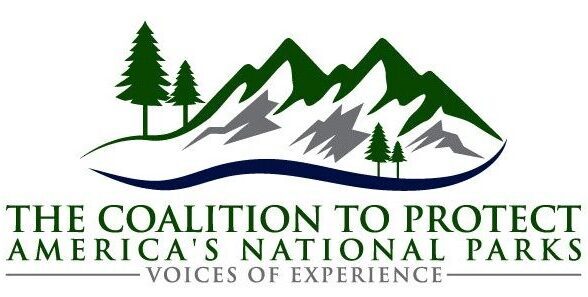Statement of Sarah Bransom
Coalition to Protect America’s National Parks
Regarding Proposed Revisions to CEQ Regulations for the
Implementation of the National Environmental Policy Act
Denver, Colorado Hearing
February 11, 2020
Good morning. My name is Sarah Bransom. I am presenting this testimony on behalf of the Coalition to Protect America’s National Parks. Our group is comprised of over 1,700 members who have worked for the National Park Service. Collectively, we represent more than 40,000 years of experience managing and protecting America’s most precious and important natural and historic resources.
I serve on the Coalition’s Executive Council. Prior to my retirement, I served 32 years as a NEPA practitioner, 22 years of that service was with the National Park Service. I managed countless highly controversial and complex NEPA projects.
Current NEPA procedures have long provided a critical mechanism for ensuring that the Park Service fulfills its mission to “conserve [parks]… unimpaired for the enjoyment of future generations.”
A key factor in making good decisions that protect parks has been strong citizen involvement. The Act states: “Congress recognizes … that each [citizen] has a responsibility to contribute to the preservation and enhancement of the environment.” There is nothing more central to a citizen’s expression of this responsibility than having the opportunity to comment on proposed federal actions.
An example of reducing or eliminating public comments is the Bureau of Land Management (BLM) 2018 revised NEPA policies to make public comment on EA’s a “may do,” not a “shall do.” As a result, some BLM offices have severely reduced or eliminated public comment on proposed oil and gas leasing near national parks and the EA’s give little to no consideration to impacts to the adjacent parks. We are concerned that this will become the norm if the proposed rule is implemented.
The proposed rule imposes arbitrary and “presumptive” time limits of one year to complete an environmental assessment (EA) and two years to complete an environmental impact statement (EIS). It also proposes arbitrary page limits that, in conjunction with the time limits, would result in agencies cutting corners at the expense of preparing quality analysis to inform decision making.
It is troublesome that extensions to time and page limits may only be granted by a “Senior Agency Official,” at the Assistant Secretary level, equivalent or higher. We can assume this will be a political appointee, which may inevitably suggest motivations beyond the NEPA process.
We will submit additional comments in written form. Thank you for the opportunity to express these concerns at today’s hearing.
